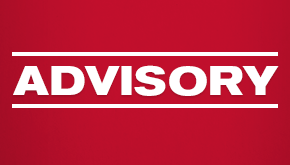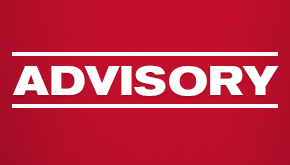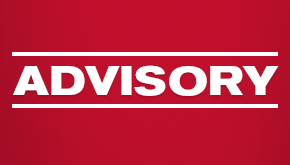Anti-Price Gouging Laws and Emergencies
Many retailers, service providers and producers operating within multiple states must contend with a patchwork of state anti-price gouging laws triggered by the spread of COVID-19–and these laws impact more than just toilet paper! Anti-price gouging laws aim to protect consumers from significantly increased costs for consumer goods and services, and over 30 states have some form of anti-price gouging law that is automatically activated upon formal declaration of a state of disaster or emergency.
Although state anti-price gouging laws have different requirements for who must declare a state of emergency before the laws go into effect—such as the declaration of a national emergency versus a statewide emergency—these differences are essentially moot in the face of COVID-19. Almost all U.S. states have declared states of emergency to address the spread of the virus and, on March 13, President Trump declared a national emergency.
As a result, for impacted companies it is not a question of whether anti-price gouging laws have been triggered in the states where they operate, but whether any recent or planned increases in prices for their goods or services run afoul of these laws. In an era when dynamic pricing is baked into many retail platforms, there is an added layer of risk of violating anti-price gouging laws.
The specifics of anti-price gouging laws vary widely between states, but the key components of these laws (leaving aside the triggering event) fall into three buckets: (1) what goods and services are covered; (2) what constitutes an impermissible price increase; and (3) what are the penalties for any violation. Because there are meaningful substantive differences in these categories between states, a single compliance strategy is not advisable.
(1) Covered Goods and Services
Many anti-price gouging laws are written to apply to “essential” or “necessary” goods and services—some laws leave these terms open-ended while others define categories of relevant goods and services. A few anti-price gouging laws target a single, explicit category of goods like petroleum products. Examples:
California |
food items, consumer goods, goods or services used for emergency cleanup, emergency supplies, medical supplies, home heating oil, building materials, housing, transportation, freight, storage services, motor fuel, construction services, hotel/motel rates, rental rates |
Florida |
commodities, household essentials, rental rates, fuel |
Illinois |
petroleum and fuel products |
Missouri |
any necessity that a seller has reason to believe will be provided to consumers in a disaster area such as, but not limited to, food, water, medical treatment, sanitation, construction, repair and transportation |
New York |
goods and services vital and necessary for the health, safety and welfare of consumers |
Pennsylvania |
consumer goods and services |
(2) Impermissible Price Increases
Some states set an outright cap on any price increases for covered goods and services during emergencies. Other states are relatively vague and bar price increases within a certain percentage range or, vaguer still, any price increase considered "unconscionable.” Many state anti-price gouging laws carve out exceptions or defenses for a price increase that can be attributed to increased costs arising out of emergency circumstances, whereas others apply to any company in the supply chain. Examples:
California |
10% cap on price increases during an emergency |
Florida |
any “unconscionable” price increase; unconscionability may be established by showing that a price increase “grossly exceeds the average price” for an item during the 30 days preceding the emergency declaration |
Illinois |
“unconscionably high” price increases; price is unconscionably high if the amount charged represents a gross disparity between increased price and the price of the product immediately before the emergency or as compared to prices for the product in the same area |
Missouri |
an excessive price that is not otherwise justified by a seller’s actual cost of acquiring, producing, selling, transporting and delivering the actual product sold plus the seller’s usual and customary profit margin prior to state of emergency |
New York |
an amount which represents an unconscionably excessive price |
Pennsylvania |
20% price increase is presumptively unlawful; increases less than 20% may be unlawful based on the circumstances |
(3) Penalties
While most states allow for citizen complaints and reports of suspected price gouging, enforcement of these laws generally falls to individual state Attorney General offices. The penalties imposed for violations of state anti-price gouging laws are just as varied as their scope of application and may involve sizeable civil penalties, injunctions, restitution and/or criminal penalties. Examples:
California |
misdemeanor punishable by imprisonment not to exceed one year or a fine of not more than $10,000; violations are cumulative; allows for private right of action |
Florida |
second-degree misdemeanor punishable by a fine of up to $1,000 and/or up to 60 days in jail for first offense; $25,000 fine for multiple violations within a 24-hour period |
Illinois |
charged as an unfair business practice subject to injunctive relief, restitution and civil penalties of up to $50,000 per violation |
Missouri |
$1,000 civil penalty per violation; may be charged as a Class D felony |
New York |
civil penalty of up to $25,000 per violation |
Pennsylvania |
civil penalty of up to $10,000 for each act |
On the federal level, there are no laws which preempt the many different state approaches to combatting price gouging. During the current emergency, requests have been made that the Federal Trade Commission (FTC) take steps to protect consumers from price gouging. Although the FTC is typically focused on matters concerning consumer fraud and unfair competition, it has the authority to investigate price gouging during emergencies. The Department of Justice and Attorney General William Barr have expressed an intention to pursue criminal prosecution of those who engage in price fixing of necessary health equipment in violation of antitrust laws. Antitrust penalties are significantly higher than those imposed by states—corporations can see fines of up to $100 million. Enforcement of anti-price gouging laws, however, remains largely a state-to-state issue. And, given the magnitude of COVID-19’s impact on the entire nation, it is not surprising that various states without an anti-price gouging law are considering emergency legislation to protect consumers.
If your operations involve the multi-state sale or provision of goods or services, an assessment of potential exposure to anti-price gouging laws and management of your prices are essential. If you have a question or require guidance on these or other points, please contact us.


































